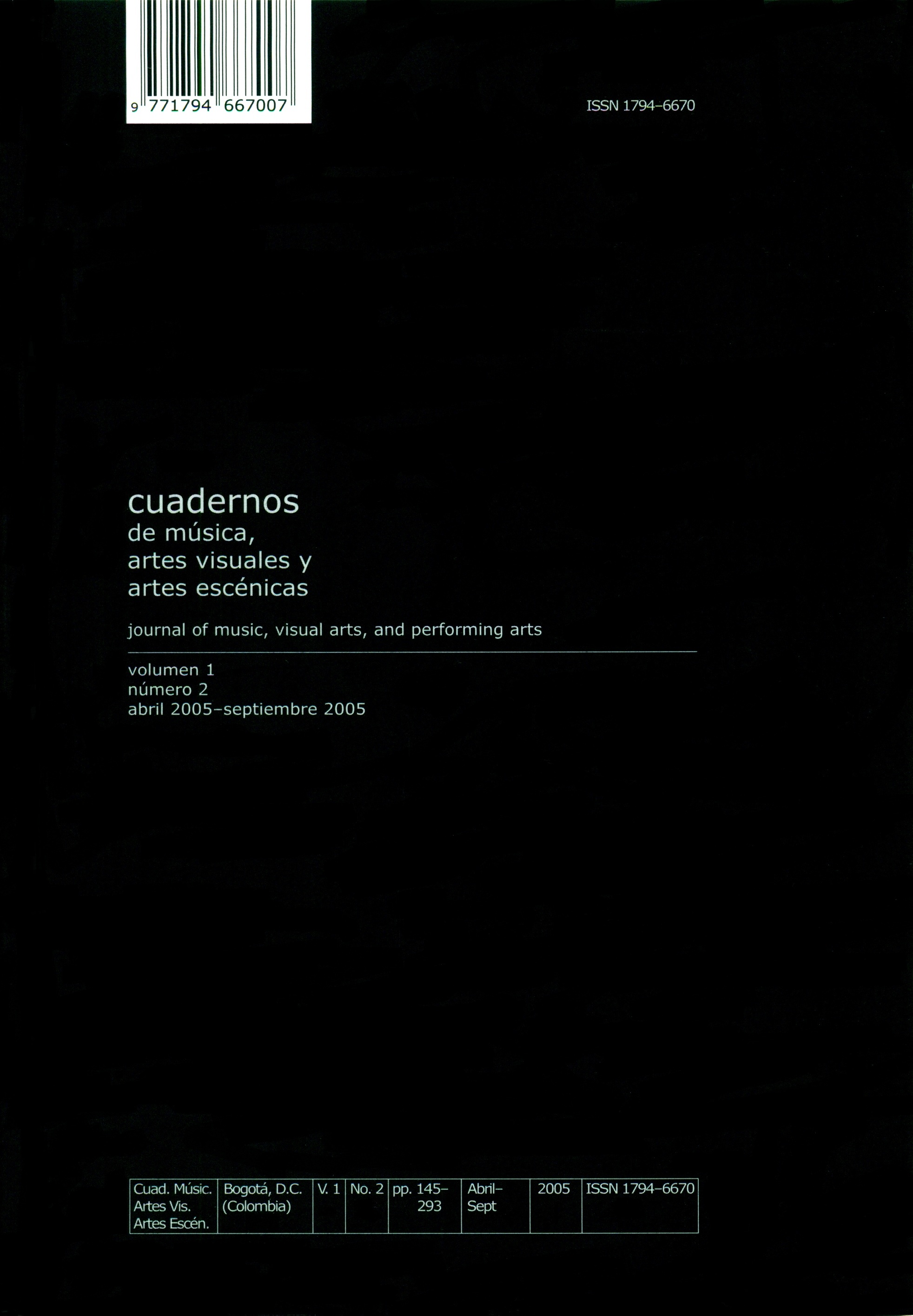Abstract
The aim of this article is the study of the concept of time in Josep Soler’s and Bernd Alois Zimmermann’s musical thought; both composers share influences and similar features in their philosophy and the reflection on time is a fundamental aspect of their aesthetics. We will also develop a comparative musicological study of their two main works, the operas Edipo y Yocasta (1971) by Soler and its contemporary Die Soldaten (1965) by Zimmermann. The lack of comparative studies of the class allows us to design a methodological proposal based on the development of suitable analytical parameters connected with the main questions that will lead the process: 1, similarities between Edipo y Yocasta and Die Soldaten; 2, main differences between these two operas; 3, unique features of each opera in the composer’s production and analysis of their agreement or discrepancy; 4, analysis of the possible extrapolation of the conclusions obtained in the comparative process to other compositions of the authors in the same period.Since the thesis aims to provide an integrated picture of each opera, both musicological and analytical methods of investigation are used. Musical elements will be analysed technically trying to cover all different compositional languages found in both operas. Apart from these, the approach to the libretti involves some elements of literary analysis and the relationship between music and text is also observed. All these analyses and the comparison proposed will allow us to find answers to the main issues indicated before, obtaining conclusions that will form a deepest and integrated picture of each opera.This journal is registered under a Creative Commons Attribution 4.0 International Public License. Thus, this work may be reproduced, distributed, and publicly shared in digital format, as long as the names of the authors and Pontificia Universidad Javeriana are acknowledged. Others are allowed to quote, adapt, transform, auto-archive, republish, and create based on this material, for any purpose, provided the authorship is duly acknowledged, a link to the original work is provided, and it is specified if changes have been made. Pontificia Universidad Javeriana does not hold the rights of published works and the authors are solely responsible for the contents of their works; they keep the moral, intellectual, privacy, and publicity rights.
Approving the intervention of the work (review, copy-editing, translation, layout) and the following outreach, are granted through an use license and not through an assignment of rights. This means the journal and Pontificia Universidad Javeriana cannot be held responsible for any ethical malpractice by the authors. As a consequence of the protection granted by the use license, the journal is able to publish retractions or to correct information already published. Publishing contents in this journal does not generate royalties for contributors.


